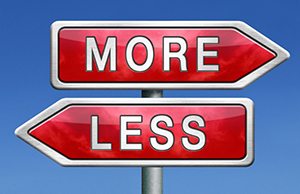Rising employment in Britain is giving a false picture of prosperity because although more people are in work, their earnings are lower than expected.
As a result, HM Revenue & Customs (HMRC) is unlikely to collect the previously estimated tax due, says the Office of Budget Responsibility (OBR).
The problem is more unemployed people have found work, but their jobs are at entry-level or low paid, says the OBR.
Many are earning around the personal income tax allowance of £10,000, which means they pay little or no income tax or national insurance contributions.
Official statistics also show the number of self-employed has risen by a third, but around 40% earn £10,000 a year or less and only 27% earn between £10,000 and £32,000.
Incomes lag inflation
Speaking in an interview with the BBC, OBR chairman Robert Chote said: “Incomes are not growing as fast as employment and that means the government is likely to collect less in tax than expected this year.
“Our figures suggest that tax due has fallen by 1%, but the forecast was the figure would rise by 6.5%.”
He also explained the timing of tax payments has changed as the self-employed report their tax due at the end of January rather than paying monthly through a payroll scheme like employed workers.
The OBR report shows 30 million people are working, which is 73% of the working age population.
Unemployment is at the lowest level since 2008, at 6.8%.
Average earnings are 1.25%, which matches the latest inflation rate of 1.2% published by the Bank of England.
Tax evaders prosecuted
Meanwhile, HMRC is prosecuting more people for tax evasion – and the figures are expected to go up over the next year.
In the year ending April 5, 2014, HMRC took 795 taxpayers to court – an increase of 29% over the year before.
The target in the next tax year is for 1,165 tax evasion prosecutions, which is a 36% increase over the current year.
Many of the new cases are expected to arise from new HMRC powers that make failing to declare offshore income a criminal offence. HMRC only has to show a taxpayer has undeclared offshore income regardless of whether they intended to evade tax.
“HMRC is increasing compliance against those who do not pay the right amount of tax and if we need to, we will take them before the courts, said an HMRC spokesman.
